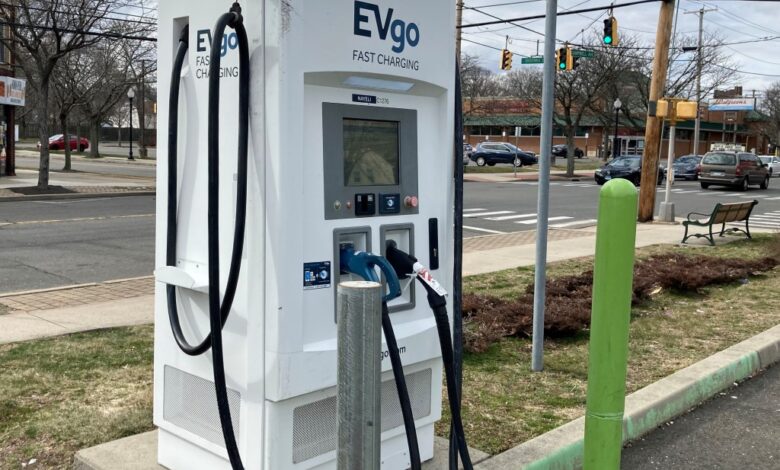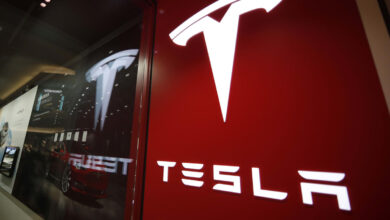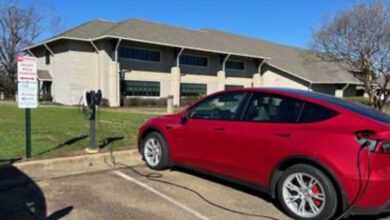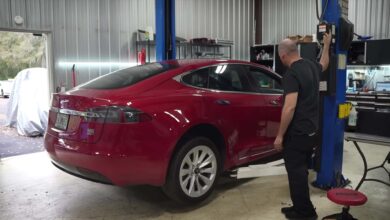UI joins Eversource in ‘pausing’ electric vehicle charger program

United Illuminating has joined Eversource in “pausing” its participation in an electric vehicle charging program, another sign of the ongoing rift with Connecticut regulators over how much of the multi-million dollar investments the utilities make in grid improvement projects can be recovered from ratepayers.
UI, which operates in the southern part of the state, paused the EV rebate program last week but disclosed the decision Thursday — a day before a Friday meeting arranged by Gov. Ned Lamont in an attempt to defuse what has turned into a standoff.
The disagreements are between the utilities and Marissa Gillett, Lamont’s appointee to chair the Public Utility Regulatory Authority. Each side accuses the other of misapplying utility law that determines how, when and how much of the money that utilities invest in grid projects they are permitted to recover through rates.
The utilities complain that regulators under Gillett have slashed recoveries to such a degree that their stock and credit ratings have fallen, making it difficult and more costly for them to raise the money they invest in grid projects. Those projects run from storm damage repair to projects such as the EV charging infrastructure at the center of the Lamont administration’s aggressive decarbonization goals.
In an interview Thursday, Lamont showed faith in Gillett and less support for the utilities. He said Eversource may be suffering from losses on offshore wind investment — something the utility disputes. In a concession to the utilities, Lamont agreed with a demand they have made for months — that they know in advance from the regulators the standards on which their rate requests are being judged.
“If you are a utility, you want to know how you are going to get paid and when you are going to get paid,” Lamont said. “I get it.”
In the short term, he said he wants the utilities and regulators to trust one another.
“I’ve got to get these guys talking,” Lamont said. “Everybody sends out press releases. Everybody has lawyers barking. It’s a hot day in June. We’ve got to lower the temperature. That’s how you get things done.
“They (the utilities) want something more reliable and predictable. Maybe they want to get paid more and faster. PURA has a role to play protecting the consumer and that is what they are trying to do. All said and done, it doesn’t work unless you can build up a certain trust between both parties. And I worry about that trust factor right now.”
The state’s EV program, in which the utilities have so far collectively invested about $75 million, is a tiny piece of the state’s decarbonization plan, but it has become a flashpoint in the deteriorating relationship between the utilities and regulators.
Under the program, the utilities provide rebates to homeowners who install EV charging equipment.
Both Eversource and UI have asked the utility regulators to allow them to apply annually, beginning in September, for recovery of their costs for the EV program through electric rates. The regulators have yet to rule on the question. This week, the regulators sent questions to the utilities that asked, among other things, for the identities of news reporters with whom utility officials have discussed the EV program.
“We urge PURA to abandon this distraction and instead work to clarify the standards of recovery for EV incentive programs, a straightforward request that PURA can fulfill quickly as there are standard ratemaking mechanisms available for an easy solution,” UI spokesperson Sarah Wall Fliotsos said. “Once they do, we look forward to reactivating a program that is essential to Connecticut’s clean energy transition, upon which so many of our customers rely.”
Because of new difficulty raising capital and uncertainty about whether they can recover money they spend on grid improvements, the utilities have said they are limiting Connecticut spending to core obligations involving the reliable delivery of electricity. If the utilities stick to their pledge, it could delay or otherwise jeopardize an array of state-directed utility programs designed to curb climate change.
Eversource has said it is redirecting spending on decarbonization to projects in Massachusetts and New Hampshire, where it says it has greater assurance of being allowed to profit from the capital it invests in those projects.
In May, Eversource CEO Joseph Nolan said he was reducing capital expenditures in Connecticut by $500 million over the next five years because of a “negative” regulatory climate that prevents the company from recovering money it invests in the state.
“You can have my assurance that we will not spend dollars until such time as we have a constructive regulatory environment that allows us to get fair treatment in the recovery of our dollars that we have spent on behalf of the customers in Connecticut to bring better service,” he said on a quarterly earnings call with utility analysts.
Gillett has declined to discuss the matter. But her agency contends she inherited a system that was out of alignment with regulatory practice elsewhere in the country and that she, not the utilities, is following the law. PURA did not respond to questions about UI’s pausing of the EV program Thursday.



